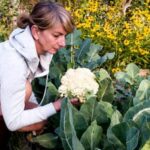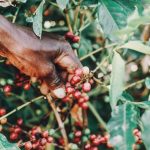Are you interested in starting your own vegetable garden in Florida? The University of Florida’s Institute of Food and Agricultural Sciences (IFAS) is here to provide expert guidance and support for successful vegetable gardening in the Sunshine State.
Florida’s unique climate and soil conditions require specific considerations when it comes to cultivating a thriving vegetable garden. From understanding the right varieties to choose, to managing pests and diseases, IFAS offers valuable resources and research-based information to help gardeners achieve success.
In this article, we will explore the key factors for successful vegetable gardening in Florida, including climate considerations, soil preparation, pest management, watering techniques, and tips for container gardening. Whether you are a beginner or an experienced gardener, IFAS has the tools and knowledge you need to grow a bountiful vegetable garden in Florida.
With the help of IFAS and their comprehensive resources, you can learn how to select the best vegetable varieties for Florida’s climate and soil conditions, as well as how to effectively manage pests and diseases that can affect your garden. Additionally, you’ll discover tips for harvesting and preserving your garden bounty, as well as valuable resources and additional support available from IFAS. Let’s dive into the world of Florida vegetable gardening with IFAS by our side.
Climate Considerations for Vegetable Gardening in Florida
When it comes to Florida vegetable gardening, one of the most important factors to consider is the unique climate of the state. With its hot and humid weather, Florida presents both opportunities and challenges for gardeners. Here are some climate considerations to keep in mind when planning your vegetable garden in Florida:
- Temperature: Florida experiences high temperatures throughout much of the year, which can impact the types of vegetables that will thrive in your garden. It is important to select heat-tolerant varieties that can withstand the summer heat.
- Rainfall: Florida’s rainfall patterns vary by region, but in general, the state receives a significant amount of rain, especially during the summer months. It is crucial to consider water management and drainage in your garden to prevent issues such as root rot and fungal diseases.
- Humidity: The high humidity levels in Florida can create ideal conditions for certain pests and diseases. Proper air circulation and plant spacing are essential for minimizing these risks.
In addition to these climate considerations, it’s also important to take into account the potential impact of extreme weather events such as hurricanes and tropical storms. Proper garden preparation and protection measures may be necessary to safeguard your vegetable crops during adverse weather conditions.
With these climate considerations in mind, you can make informed decisions about the types of vegetables to grow, as well as the best practices for maintaining a successful garden despite the unique challenges posed by Florida’s climate. By leveraging resources from IFAS and seeking guidance from local extension offices, you can maximize your chances of cultivating a thriving vegetable garden in this dynamic environment.
Soil Preparation and Fertilization for Successful Vegetable Gardening
When it comes to successful Florida vegetable gardening, proper soil preparation and fertilization are essential. The unique climate and soil conditions in Florida require specific attention to ensure your vegetable garden thrives. The University of Florida’s Institute of Food and Agricultural Sciences (IFAS) is a valuable resource for guiding gardeners on the best practices for soil preparation and fertilization in the state.
To prepare the soil for your Florida vegetable garden, consider the following steps recommended by IFAS:
- Conduct a soil test: Before planting, it is crucial to test the pH and nutrient levels of your soil. IFAS can provide guidance on how to collect samples and where to send them for analysis.
- Amend the soil: Based on the results of your soil test, IFAS can recommend specific amendments such as lime or sulfur to adjust the pH, as well as organic matter or compost to improve soil structure and fertility.
- Till the soil: Proper tilling can help incorporate amendments and loosen compacted soil, creating an optimal environment for vegetable roots to grow.
In addition to proper soil preparation, fertilization is key to supporting healthy plant growth in Florida’s vegetable gardens. IFAS advises gardeners on effective fertilization practices tailored to Florida’s unique conditions, including:
- Using slow-release fertilizer: Slow-release fertilizers provide a consistent supply of nutrients over an extended period, reducing the risk of leaching in Florida’s sandy soils.
- Following recommended application rates: IFAS offers guidelines on how much fertilizer to apply based on plant type and stage of growth, helping gardeners avoid over-fertilizing and potential environmental damage.
- Maintaining proper nutrient balance: IFAS resources can assist in understanding the specific nutrient needs of various vegetables grown in Florida, ensuring they receive the necessary elements for healthy development.
By following IFAS recommendations for soil preparation and fertilization, you can lay a strong foundation for a productive and flourishing vegetable garden in Florida. With their expert guidance, you can address any challenges posed by the state’s unique growing conditions and achieve successful results in your gardening endeavors.
Best Vegetable Varieties for Florida’s Climate and Soil Conditions
When it comes to choosing the best vegetable varieties for Florida’s climate and soil conditions, there are several factors to consider. The University of Florida’s Institute of Food and Agricultural Sciences (IFAS) provides valuable information on which vegetables thrive best in Florida, taking into account the state’s warm, humid weather and unique soil composition.
According to IFAS, some of the best vegetable varieties for Florida include heat-tolerant tomatoes such as Floradel, Homestead, and Solar Set. For peppers, varieties like Big Bertha, Cubanelle, and Sweet Banana are well-suited to Florida’s climate. Additionally, certain types of squash such as Zucchini Elite and Pic-N-Pic are recommended by IFAS for successful growth in Florida.
In terms of leafy greens, IFAS suggests planting heat-tolerant lettuce varieties like Black Seeded Simpson and Jericho. For those interested in growing cucumbers, Marketmore 70 and Picklebush are among the recommended varieties for flourishing in Florida. It’s important to note that IFAS continually conducts research on vegetable varieties that perform well in Florida’s specific conditions and regularly updates its recommendations.
Another important aspect of selecting the right vegetable varieties for Florida is considering soil conditions. Certain crops may require different soil pH levels and nutrient compositions to thrive in this state. IFAS offers detailed guidelines on soil preparation and fertilization techniques that cater specifically to the needs of various vegetable plants commonly grown in Florida.
| Vegetable Varieties | Recommended by IFAS |
|---|---|
| Tomatoes | Floradel, Homestead, Solar Set |
| Peppers | Big Bertha,Cubanelle,Sweet Banana |
| Squash | Zucchini Elite,Pic-N-Pic |
Pest Management and Disease Control for Florida Vegetable Gardens
When it comes to successful Florida vegetable gardening, managing pests and diseases is crucial. The warm and humid climate of Florida creates the perfect environment for a wide range of pests and diseases that can affect your vegetable garden. The University of Florida’s Institute of Food and Agricultural Sciences (IFAS) provides valuable resources and information on how to effectively manage these challenges.
One key aspect of pest management in Florida vegetable gardening is to identify the common pests that are prevalent in the state, such as aphids, whiteflies, caterpillars, and spider mites. IFAS offers detailed guidance on how to recognize these pests and implement integrated pest management techniques to control their populations without relying solely on chemical pesticides.
In addition to pest control, disease prevention is essential for maintaining a healthy vegetable garden in Florida. IFAS recommends selecting disease-resistant plant varieties whenever possible and practicing good sanitation measures, such as removing infected plants and debris from the garden area.
Proper spacing between plants, adequate air circulation, and avoiding overhead watering can also help prevent the spread of diseases in your Florida vegetable garden. With the support of IFAS resources, Florida gardeners can effectively manage pests and diseases to cultivate thriving vegetable gardens.
Watering and Irrigation Techniques for Thriving Vegetable Plants in Florida
When it comes to Florida vegetable gardening, proper watering and irrigation techniques are essential for the success of your crops. The hot and humid climate of Florida means that plants often require more moisture than in other regions, making it important to pay attention to watering practices.
One crucial aspect of watering in Florida vegetable gardening is understanding the specific needs of each type of vegetable. Some plants may thrive with consistent, even moisture, while others may prefer periods of drying out between watering. It’s important to research the individual requirements of the vegetables you plan to grow and tailor your watering schedule accordingly.
In addition to regular watering, irrigation techniques such as drip irrigation or soaker hoses can be highly beneficial in Florida vegetable gardening. These methods deliver water directly to the base of the plants, minimizing evaporation and reducing the risk of fungal diseases caused by overhead watering. Florida gardeners can find valuable information on appropriate watering and irrigation techniques specifically tailored for their region through resources provided by IFAS.
Furthermore, mulching is another effective practice for retaining soil moisture in Florida vegetable gardens. Mulch helps to reduce evaporation from the soil surface and maintain a more consistent level of moisture around plant roots. This is especially important during hot and dry periods in Florida’s climate. By implementing proper watering, irrigation, and mulching techniques, gardeners can ensure their vegetable plants receive the optimal amount of moisture they need to thrive in Florida’s unique growing conditions.
Tips for Successful Container Gardening in Florida
Container gardening is a great option for those who have limited space or poor soil conditions. In Florida, where the climate can be challenging for traditional gardening, container gardening can offer flexibility and control over growing conditions. The University of Florida’s Institute of Food and Agricultural Sciences (IFAS) provides valuable tips for successfully growing vegetables in containers in the Sunshine State.
Choosing the Right Containers
When it comes to choosing containers for your vegetable garden, it’s important to select ones that are large enough to accommodate the root systems of your plants. Make sure the containers have drainage holes to prevent waterlogging, which can lead to root rot. Additionally, consider the material of the containers – terracotta, plastic, or fabric pots are popular choices. Keep in mind that dark-colored containers may absorb more heat and require more frequent watering.
Selecting the Right Vegetables
Not all vegetables are suitable for container gardening in Florida. When choosing what to grow, consider the size of your containers and the sunlight exposure on your porch or balcony. Some vegetables that thrive in Florida’s climate and are well-suited for container gardening include tomatoes, peppers, herbs like basil and oregano, lettuce, and cucumbers.
Maintenance Tips
Proper maintenance is crucial for successful container gardening in Florida. Watering is especially important as containers may dry out more quickly than garden beds. Check soil moisture regularly and adjust watering frequency as needed to ensure consistent moisture levels. Fertilize your container vegetables according to IFAS recommendations and keep an eye out for pests or diseases that may affect your plants.
By following these tips from IFAS, you can enjoy a bountiful harvest from your container garden in Florida while overcoming some of the challenges of traditional ground-based vegetable gardening in this unique climate.
Harvesting and Preserving Your Florida Vegetable Garden Bounty
When it comes to harvesting your Florida vegetable garden, timing is everything. Each type of vegetable has its own unique indicators for when it is ready to be harvested. For example, tomatoes should be picked when they are fully colored and slightly soft to the touch, while green beans are best harvested before the seeds inside the pods have fully developed.
To ensure that you are harvesting at the right time, it’s essential to regularly inspect your plants. Be sure to check for any signs of ripeness such as color, size, and texture. If you’re unsure about when a particular vegetable is ready to be picked, consult resources from IFAS for guidance specific to Florida vegetable gardening.
Once you have successfully harvested your bounty of vegetables from your Florida garden, preserving them properly can ensure that you can enjoy them for an extended period. One common method of preservation is canning, which involves sealing vegetables in airtight jars and then heating them to destroy any microorganisms that could cause spoilage. Another popular preservation method is freezing, which can help retain the flavor and nutrients of freshly harvested vegetables.
Proper storage is also crucial for preserving the quality of your harvested vegetables. Store your vegetables in a cool, dry place with good air circulation. Some vegetables such as tomatoes and peppers can be stored at room temperature, while others like carrots and potatoes should be stored in a dark place with moderate humidity.
Resources and Additional Support for Florida Vegetable Gardening From IFAS
In conclusion, Florida vegetable gardening can be a rewarding and fruitful endeavor with the right knowledge and support. The University of Florida’s Institute of Food and Agricultural Sciences (IFAS) is an invaluable resource for both novice and experienced gardeners in the state. From climate considerations to soil preparation, pest management, and watering techniques, IFAS provides comprehensive guidance for successful vegetable gardening in Florida.
One of the key considerations for successful Florida vegetable gardening is selecting the best vegetable varieties that are well-suited to the state’s unique climate and soil conditions. IFAS offers valuable recommendations on which varieties thrive in Florida, ensuring a bountiful harvest for gardeners. Additionally, IFAS provides expertise on pest management and disease control specific to Florida’s vegetable gardens, helping gardeners protect their crops from common threats.
For those interested in container gardening, especially in urban environments or limited spaces, IFAS offers tips for success in this alternative approach to vegetable gardening. With proper guidance from IFAS, gardeners can learn how to grow a variety of vegetables in containers while maximizing space and resources.
As gardeners enjoy the results of their hard work through harvesting their bounty, IFAS also provides recommendations for preserving vegetables to enjoy their freshness long after they’ve been picked. Overall, IFAS serves as a valuable ally and resource for anyone looking to embark on or improve their Florida vegetable gardening journey.
Frequently Asked Questions
What Is the Best Month to Plant Vegetables in Florida?
The best month to plant vegetables in Florida is typically in the fall, from September to November. This allows the plants to establish before the cooler winter months and before the scorching heat of summer.
Can You Have a Vegetable Garden Year Round in Florida?
Yes, it is possible to have a year-round vegetable garden in Florida due to its warm climate. With careful planning and selection of vegetables that thrive in different seasons, you can enjoy fresh produce throughout the year.
What Are the Best Vegetables to Grow in Florida Right Now?
The best vegetables to grow in Florida right now depend on the season. In the fall and winter, cool-season crops like lettuce, spinach, carrots, and broccoli thrive. As spring approaches, warm-season crops like tomatoes, peppers, cucumbers, and squash become more suitable for planting in Florida’s climate.

If you’re looking to get into vegetable gardening, or are just looking for some tips on how to make your current garden better, then you’ve come to the right place! My name is Ethel and I have been gardening for years. In this blog, I’m going to share with you some of my best tips on how to create a successful vegetable garden.





